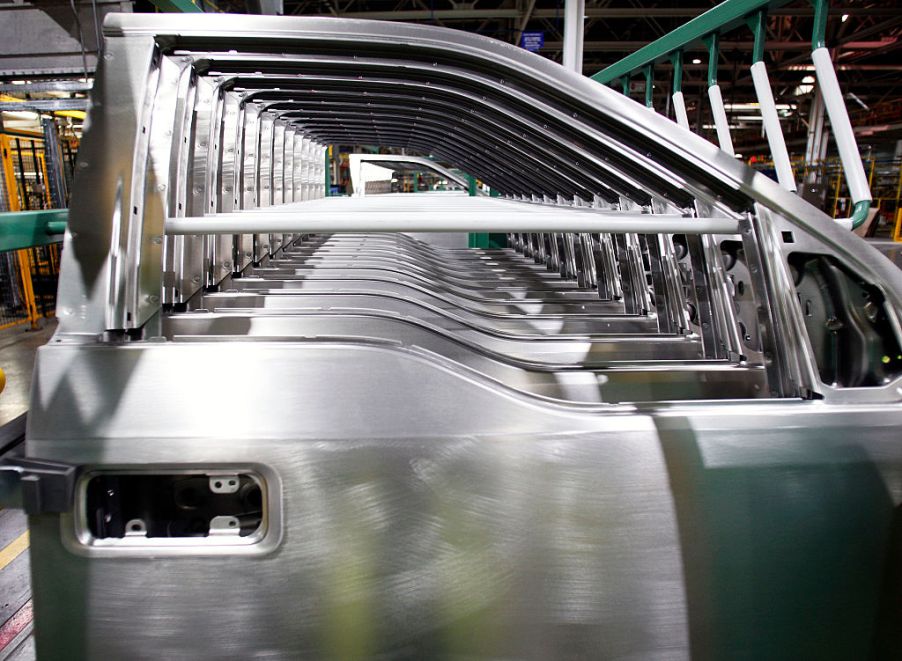
Why Don’t More Trucks Use Aluminum Bodies?
As the Aluminum Association reports, the first sports car consisting of an aluminum body was unveiled at an 1899 auto show. However, even today some truck manufacturers such as GMC, Chevy, and Ram still rely mostly on steel. Although truck bodies are not exclusively made from aluminum, there are nonetheless quite a few advantages to using it. We’ll take a look at the differences between aluminum and steel below.
Reduced weight of aluminum

One of the biggest advantages of aluminum over steel is weight. By going with an aluminum, rather than a steel body, the weight of a truck could ultimately be reduced by up to 700 pounds. And reduced weight generally means better gas mileage, in which case drivers could save hundreds of dollars in operating costs each year.
Buyers could also save on the cost of a new vehicle. Aluminum is less expensive to produce than steel. Accordingly, new pickups could become less expensive, allowing more people to purchase a new rather than a used vehicle.
The gradual switch has also resulted in trucks lasting longer. At one time, a pickup with 100,000 miles was considered to be over its mechanical limits, but these days vehicles are lasting 250,000 miles or more. That’s partly because lighter-weight vehicles put less strain on the fuel system and tires, thereby requiring fewer engine repairs.
Rust resistance
Aluminum alloys are very resistant to rust and corrosion. This means that you will not have to worry about rust eating holes into your truck or any of its vital components such as the engine. Steel, on the other hand, must be coated with a galvanized layer of zinc. While this will provide some protection, even the slightest ding or scratch can compromise the coating and leave the underlying panels vulnerable to rust.
Safety
One of the main reasons many prefer steel over aluminum has to do with safety. After all, a more durable metal would naturally provide better protection during a crash, right? Recent studies show there may actually be no basis to that idea at all. The Aluminum Association notes that in recent frame tests, aluminum has actually been shown more durable than steel.
The association points out that in testing by the Insurance Institute for Highway Safety (IIHS), the Ford-F150 was the only one to be rated a Top Safety Pick. They note that the F150, which has an aluminum body, beat out four other steel-bodied pickups. This happened during simulated crashes that mimicked head-on collisions and hitting fixed objects.
Environmentally friendly material
Steel and aluminum are both derived from ore. Even so, the aluminum refining process is cleaner and produces fewer emissions than with steel. And unlike steel, no harmful chemicals are used during manufacturing. This naturally means that aluminum is a better choice for those who wish to reduce their carbon footprint.
Since aluminum is easily recyclable, body panels can be made from reclaimed material. It will also be very easy to recycle a truck body once it has reached the end of its normal lifespan. An estimated 85% of all aluminum is derived from recycled products. In turn, using recycled products requires less energy during the manufacturing process.
Heat-treated aluminum advantages
To offer these advantages, a truck should be made from heat-treated 6,000 series aluminum. This type of aluminum has been shown to be every bit as tough as its steel counterpart. At the same time, its lighter weight and rust resistance simply cannot be matched by steel. Since aluminum offers numerous cost and maintenance savings, perhaps it is time for more truck manufacturers to begin considering it.


